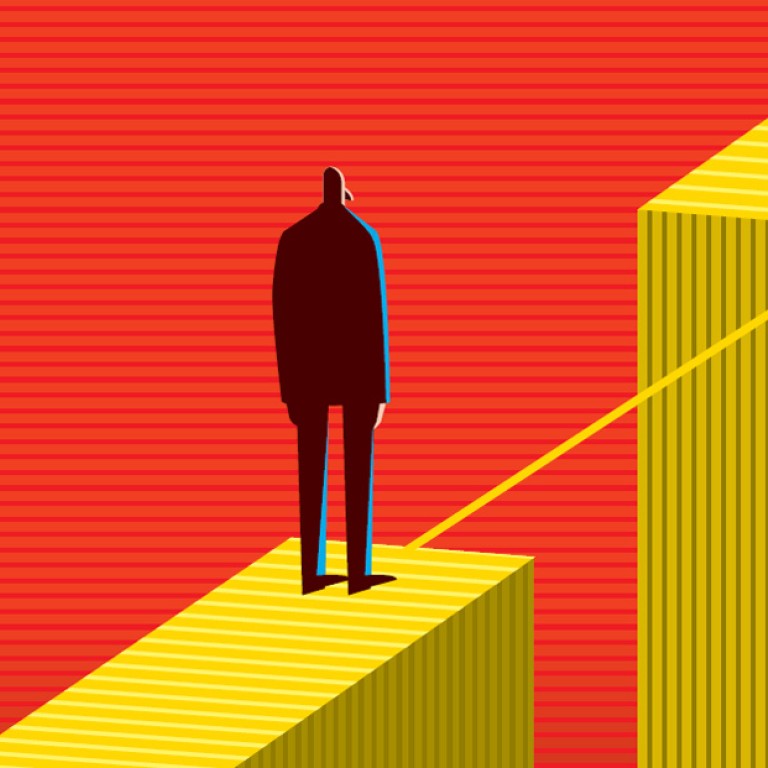
Chalk failure up to experience, then move on to your next idea
Some of the greatest entrepreneurs have shown that success rarely happens the first time around and that setbacks can add to experience
William Zeckendorf, the American property developer who died recently, is not well known in Hong Kong, but he is credited with literally shaping and transforming Manhattan with his buildings.
Zeckendorf's life is hardly a rags-to-riches story, because he inherited a substantial business from his father, but the empire he built made it considerably larger. On the way, notably in the mad and bad 1980s, he reached both the heights and the depths of his business career.
Like many other property developers, he thought that the boom, which reached its apex in the early 1980s, would keep going. It did not, and Zeckendorf's company was exposed to a mountain of debt that looked like being fatal.
I have not failed. I have just found 10,000 ways that won’t work
However, he decided not to succumb to defeat but to learn from it and resolved to rebuild the company but with greater caution. In so doing, Zeckendorf was following in the wake of most of the world's success-ful entrepreneurs, who experienced very serious setbacks but learned from them to emerge triumphant.
Henry Ford, who built the Ford Motor Company, suffered two major business failures but later reflected that "failure is just a resting place. It is an opportunity to begin again more intelligently".
Ford's business failures pale in comparison to Thomas Edison's 10,000 failed attempts to invent a commercially viable light bulb. But, as he put it, "I have not failed. I have just found 10,000 ways that won't work." Oh, and by the way, he created a company called General Electric; you might have heard of it.
The difference between entrepreneurs and businesspeople who tread the steady path of sticking to the tried and tested is that they have a completely different attitude to both failure itself and the risk of failure.
In management-speak, the attitude of entrepreneurs is reduced to the supposedly scientific term "risk tolerance". However, this anodyne terminology entirely fails to convey the depths of depression, angst and, well, all the other bad stuff that crops up when you not only lose money but also suffer the realisation that you are simply not up to the mark when it comes to being a success. Colonel Harland Sanders, whose face, or at least an idealised version of it, adorns KFC outlets around the world, developed what he was convinced was a brilliant chicken recipe, which he unsuccessfully tried to sell to no less than 1,000 different restaurants.
Having been hit with this volume of rejections, it might be thought that he would have concluded that the recipe was not half as good as he imagined. However, he resolved to establish his own business, based on his idea for a particular type of fried chicken.

Of course, for every businessperson who succeeds despite setbacks, there are a far greater number who simply fail, often without learning anything, and lamentably these failures result in debts and personal problems that can produce terrible outcomes.
I am very far removed from the giddy heights of the entrepreneurs mentioned above, but I have been involved in the establishment of six companies and a couple of unincorporated entities. Of these, two failed completely - in business terms, one of these companies made quite good money but ran out of steam - and three companies are still going.
The failure I most regret is that of a company with a number of investors, who, on reflection, should probably have kept away from the project because it was high-risk and they had no entrepreneurial experience.
They were understandably more than upset by the company's demise and, as far as I know, concluded that they were far better off keeping away from investing in start-ups in the future.
I cannot disguise my own disappointment, but I drew a very different conclusion from this business failure, which was to add this experience to the knowledge required for a new start-up.
Strangely, the biggest blows that come with business failure do not necessarily focus on the lost money but are about loss of self-esteem, concern over your ability and the loss of self-confidence.
It takes a rather perverse, some may say arrogant, frame of mind to overcome this blow to self-confidence and conclude that the best thing to do is to try again.
This makes serial entrepreneurs a curious breed, who may well not be wonderful human beings. Ford, for example, had odious views about race and flirted with fascism. The now jailed Turkish Cypriot but London-based entrepreneur Asil Nadir, whom I know slightly, was full of great ideas but seemed to regard the law as an obstacle rather than a code of behaviour.
So, if you are looking for nice, user-friendly entrepreneurs who are sufficiently self-confident not to be deterred by failure, dream on, but if you are looking for their business success, that's a different story.

